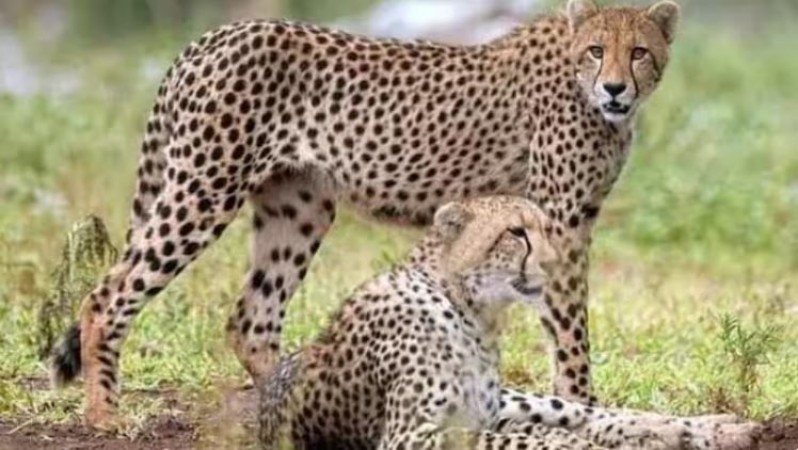
Sheopur: two male coalition cheetahs named Elton and Freddie have been released in the free-ranging area in Madhya Pradesh's Kuno National Park (KNP) successfully on Wednesday.
"Elton and Freddie, two male coalition cheetahs, were successfully released in Kuno's free-range area at 6.30 p.m. today. Both are healthy and doing well, as per a tweet from Kuno National Park.
As per reports, two cheetahs -- a male named Oban and a female named Asha -- hunted a chital (deer) in Kuno National Park on March 13 within a 24-hour period. Officials said that both cheetahs had gone hunting within the past day and are blending in with their surroundings.
The water system is also efficient, and there are enough animals in the forest for their hunting needs. Yesterday morning, the male cheetah Oban was released into the open forest, while the female cheetah Asha was freed later that day, Divisional Forest Officer Prakash Kumar Verma said. Likewise, other cheetahs will also be released from the enclosure one by one, officials said.
Prime Minister Narendra Modi released eight cheetahs into Kuno National Park in Madhya Pradesh in September of last year.
The cheetah was declared extinct in India in 1952, but as part of "Project Cheetah" and the government's efforts to revive and diversify the nation's fauna and environment, 8 cheetahs (5 females and 3 males) were transported from Namibia in Africa.
In an effort to relocate the eight cheetahs across continents, a cargo plane carried them to Gwalior.
Later, the Indian Air Force choppers delivered the cheetahs to Kuno National Park from Gwalior Air Force Station. An MoU that was reached earlier this year allows for the importation of cheetahs.
Cheetahs will aid in the restoration of India's open forest and grassland ecosystems, help to preserve bio-diversity, and improve ecosystem services including soil moisture conservation, water security, and carbon sequestration.
The restoration of wild wildlife, mainly cheetahs, was carried out under the ambitious Project Cheetah of the Indian government in accordance with IUCN recommendations.
India has a long tradition of protecting animals. Project Tiger, one of the most effective efforts to conserve wildlife, was started back in 1972 and has helped to preserve not only tigers but also the entire ecosystem.
GAJ UTSAV: Kaziranga National Park to be shut from April 6 to 8
MP farmers will get compensation for crop losses: CM Chouhan
PM Mitra mega textile parks to set up in TN, MH, Gujarat, UP and more